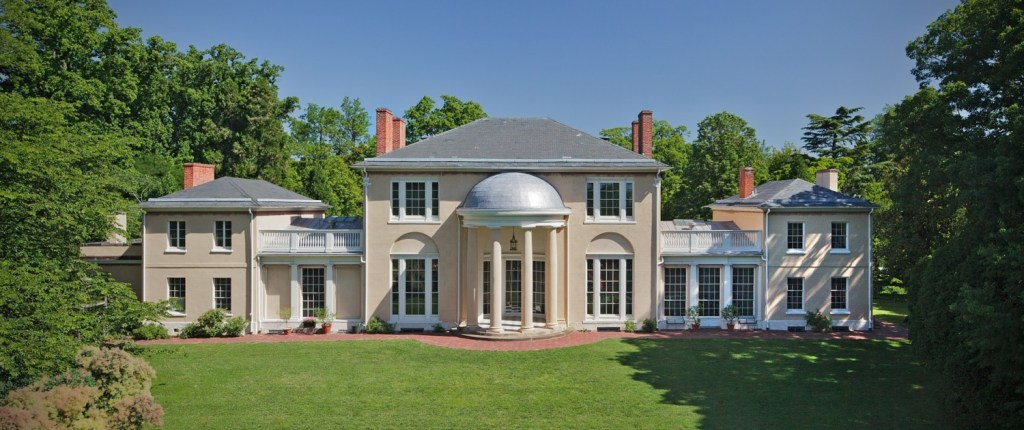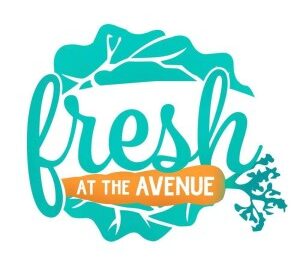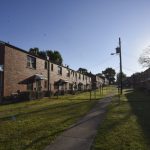By Mennatalla Ibrahim
Special to the AFRO
There’s great comfort and privilege in tracing one’s features or mannerisms through a family line. However, for many African Americans across the country, this task is often marked with a unique pain and difficulty due to the absence or distortion of records left behind during slavery.
The annual Tudor Place Landmark Lecture Series makes space for the descendants of enslaved people to share their journeys in piecing together their ancestors’ stories.
“Tudor Place is keeping enslaved people’s stories alive,” said Jerolyn Cole, a descendent of John Luckett, who served as a gardener at Tudor Place for 44 years.
Tudor Place is an early 19th century estate in Georgetown that once housed six generations of Martha Washington’s descendants as well as the many enslaved people who lived and worked there for nearly two centuries. Today, Tudor Place acts as a museum that preserves their stories.
On Oct. 10, the Tudor Place Historic House & Garden partnered with Georgetown University’s Art & Museum Studies Master’s Program to bring “Identity, Trauma & Reconciliation: A Conversation with Descendants” to the school’s Washington, D.C. campus. Hosted and moderated by documentary filmmaker Fredrick Murphy, the panel featured five descendants of individuals enslaved at the estates at Tudor Place, the estate at Mount Vernon or the Arlington House.
Cole, along with cousin and fellow panelist Karl Haynes, are only in the beginning stages of unfolding their family tree. Haynes was contacted by Tudor Place in 2022 after his name came up in connection to John Luckett on a genealogical site. At the time, Haynes had been tracing his lineage for seven years through his own DNA testing and research.
“Happiness without a past is happiness without a future,” Haynes said. “Not everything about history is supposed to make you feel good. You have to look at the darkness.”
Panelist Ann Chinn, on the other hand, grew up with “a strong awareness” of her history. She is a second-generation descendant of Barbara Cole Williams who spent more than 40 years enslaved at Tudor Place before becoming a free resident of Georgetown. Despite this knowledge, Chinn’s elders made an effort to shield her from the reality of her family line.
“We would go to Mount Vernon twice a year without any explanation,” Chinn said. “I found out later it was a family pilgrimage. I was ignorant for the first 27 years of my life.”
According to Chinn, her family had spent 243 years enslaved. The earliest record of this bloodline can be traced back to Williams’ maternal grandmother, Sall Twine, who was enslaved at the estate at Mount Vernon – which was owned by Martha Washington’s first husband – before being married and sold to Tudor Place.
“When we’re trying to imagine our ancestors, so much imagination is required, but it wasn’t a surprise,” Chinn said, pointing to her light complexion when asked about finding out that she was a descendant of both enslaved people and enslavers. “Even if you’re ‘White,’ you’re related to someone of African descent somehow.”
Similarly, Steve Hammond, a descendant of the Syphax family at the estates in Mount Vernon and the Arlington House, didn’t learn about his family’s connection to Virginia history until he was a teenager. He was a 16-year-old boy living in Denver when his older cousin casually brought up his family’s history. Today, Hammond is a genealogist and family historian who has spent decades reconstructing his family’s lineage.
“I think the trauma and the history and the impact is all still there. It’s all around us. It’s a part of our fabric,” Hammond said. “ was visceral. I felt in that space.”
Vincent Carter, a fellow panelist and descendant of enslaved people, had a very similar reaction to his own family’s trips to Mount Vernon.
“I loved history, but I never wanted to go to Mount Vernon,” Carter said. “ I never wanted to go to the plantation, but I realized that I had an obligation to go.”
After each of the panelists took turns sharing their story and answering questions prompted by Murphy, 15 minutes were allotted for questions from the audience. Attendees included panelists’ family members, Georgetown students and faculty, reporters, fellow descendants and members of the Tudor Place, the Arlington House and Mount Vernon communities.
“This is not just Black history. This is American history. give us a fuller understanding of what happened in America and the ramifications of slavery,” said Sharon McKinnis, a genealogist for the Arlington House.
Attendees seemed particularly interested in Chinn’s story, directing all of the questions in the 15 minutes allotted her way.
“Everybody has a different way of articulating things, but the way that Miss Ann expressed herself╼the things she said about her history, the history of her extended family and the concept of being biracial╼was really eye opening to me,” said Angela Christian, a longtime D.C. resident and a member of the Tudor Place community. “It seems like she’s really thought about this and she’s really grounded. It’s the place we all want to be. We want to know as many details as we can, not to be stuck in the past, but to go forward.”
This year’s Landmark Lecture Series consisted of five lectures between April and November. The final one, “Laborious Histories: Critical Fabulation & The Practice of Black Public History” is scheduled for Nov. 7 at Tudor Place.
“We have to tell our own history,” Carter said. “No one can tell it like us.”
The post Slave descendants discuss connections to D.C., Virginia estates during landmark lecture on Georgetown campus appeared first on AFRO American Newspapers .










